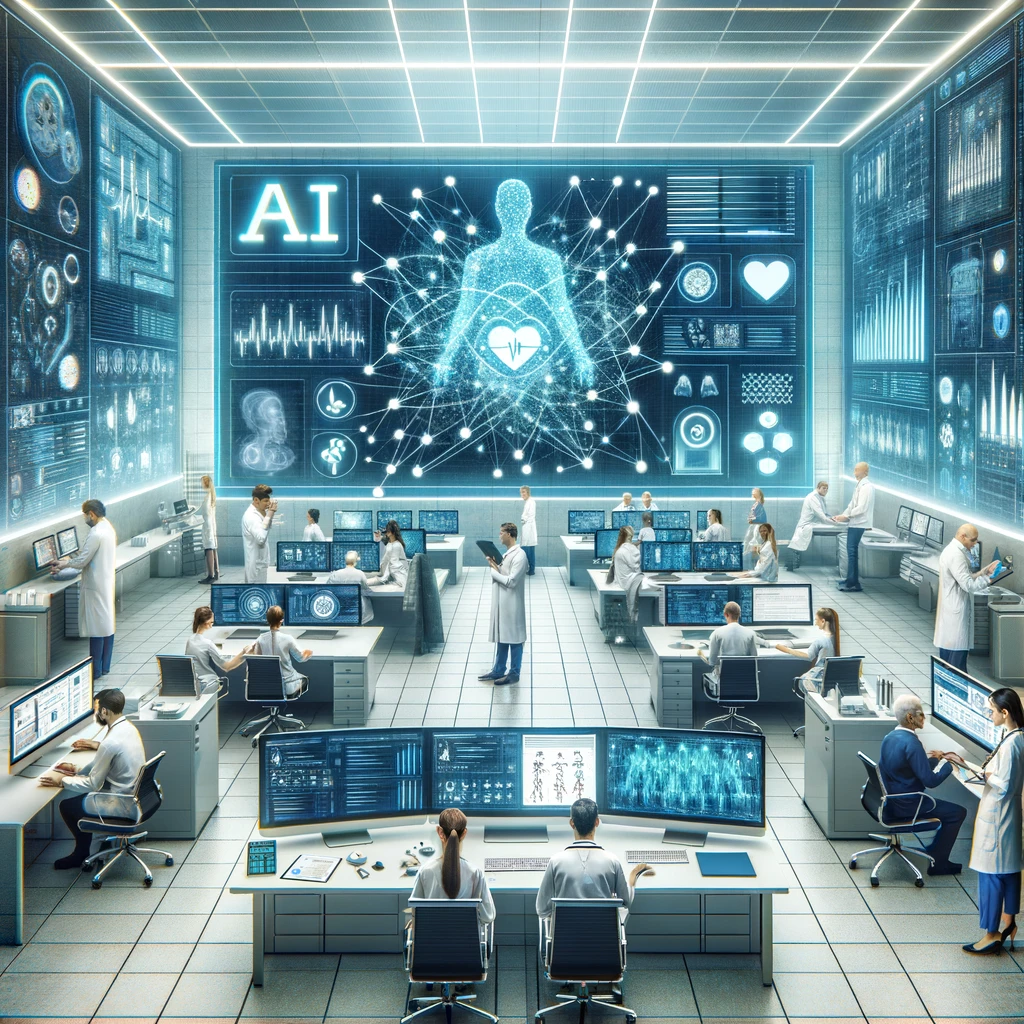Running a healthcare business comes with a heap of admin tasks. Too much on your plate can mean less time for patients and profits. Enter AI. Tools like Microsoft Copilot are game changers, helping IT teams catch and fix issues early. They streamline your operations so you stay focused on what matters.
Ready to see how AI transforms healthcare IT? Our blog has the insights. Let’s get to the heart of smarter, more efficient care.
AI-Powered Scheduling
Administrative work for healthcare professionals often entails communicating with vendors, consumers, and internal departments. Artificial Intelligence can simplify their task by automatically sending the appropriate message through individuals’ preferred contact methods – this reduces miscommunication risks – which is especially dangerous in healthcare.
AI-enhanced communications platforms can also improve patient engagement by offering 24/7 support through branded, consumer-facing chatbots that answer common queries while providing self-service options for scheduling, rescheduling, or canceling appointments.
With financial, societal, and political pressure for cost reduction increasing rapidly in healthcare organizations, they must prioritize efficiency. AI can play an essential role in driving this goal by automating processes within the revenue cycle, such as billing categorization and management, using natural language processing to streamline data capture from unstructured clinical notes into billing codes more efficiently, as well as helping identify coding errors that often result in denials.
AI-Powered Reporting
AI provides healthcare organizations with a powerful way to streamline reporting. Machine learning algorithms and natural language processing (NLP) are two subsets of artificial Intelligence that work together seamlessly to streamline data-driven reporting more efficiently and accurately.
This technology helps streamline clinical and administrative processes, such as claim submission for reimbursement, prior authorization, financial analytics, and billing/revenue cycle management.
Artificial Intelligence can assist healthcare IT services by lowering costs and increasing efficiency through managed IT services, automation software, and predictive analytics that identify areas for improvement.
Although AI offers healthcare employees many advantages, some remain anxious about its possible effect on job satisfaction and turnover. However, implementing this technology should be seen as a gradual process that can be tailored specifically to individual roles and goals; AI’s true power lies in improving workplace efficiency while simultaneously increasing morale – these three aspects ultimately contribute to improved patient outcomes – this is the power of AI in healthcare!
The lack of infrastructure and training resources is the only thing holding back its full potential from reaching its true potential.
AI-Powered Analytics
Gen AI technology can be invaluable in helping healthcare systems navigate logs and data efficiently, particularly those related to core administrative or corporate functions.
Gen AI can quickly summarise unstructured information so staff members can concentrate on more complex tasks.
AI-powered automation software enables hospitals to transform their work by decreasing burnout and staffing issues, increasing revenue streams, and realizing more significant returns on investments such as ORs. Furthermore, this enables hospitals to deliver improved patient outcomes at reduced costs.
Medical diagnostics is another area in which AI could radically enhance healthcare operations. Physicians can become overwhelmed during 15-minute visits when trying to simultaneously transcribe charts, complete insurance checklists, review past electronic health records, and perform tests on patients. AI may significantly streamline this process for healthcare operations.
AI could streamline these processes, making it easier for healthcare professionals to diagnose patients and determine the optimal course of treatment accurately. This would reduce missed treatment opportunities and medical errors, helping hospitals keep pace with an ever-evolving regulatory environment.
AI-Powered Integrations
Deploying AI across healthcare IT ecosystems enables organizations to maximize the value of their data, automate tedious processes, improve doctors’ diagnoses, lower health and fraud risks, and increase efficiency – ultimately leading them to provide faster and more cost-efficient healthcare services for patients.
The use of Gen AI for back-office and administrative functions like purchase orders, accounts payable, and human resources can significantly enhance employee experiences while cutting time and costs, freeing staff for more critical care services.
AI-enabled systems can assist hospitals in making more informed purchasing decisions by analyzing usage patterns, shelf lives, and lead times to optimize inventory levels and prevent stockouts or overstocks. AI can also assist hospitals with revenue cycle management – the financial practice of overseeing claims processing, payment, and billing activities to generate revenue – using automation technologies like gen AI to automate these tasks can improve patient experiences while decreasing operational costs and ultimately increasing revenue generation – an area ripe for improvement given rising financial, societal, and political pressure to reduce hospital operating costs.
AI-Powered Predictive Analysis
AI can make healthcare data processing much more manageable for humans, helping staff focus on more complex needs rather than administrative duties such as sorting resumes or screening applicants for open positions. AI also assists with administrative tasks like log sorting or data sifting so staff members can focus on complex patient care needs instead of mundane managerial duties.
Gen AI can improve patient outcomes, streamline processes, and increase efficiency within healthcare organizations. Integrating EMRs allows Gen AI to automate eligibility verification to reduce denial rates, prepopulate visit summaries and instructions, synthesize notes from physician rounds, and create checklists, shift-offs, care coordination reports, and lab summary documents – bringing added financial benefit.
Artificial Intelligence can help identify patients at risk of readmission, optimize facility resources, add Intelligence to pharmaceutical and supply management, and enhance patient outcomes. But deploying this technology in the field presents numerous challenges; among these is ensuring personal data collected by AI programs remains secure and private and the accuracy of predictive analyses, which relies on vast quantities of high-quality data sets for analysis.
Learn more about how we’re helping clients with their IT needs here.




